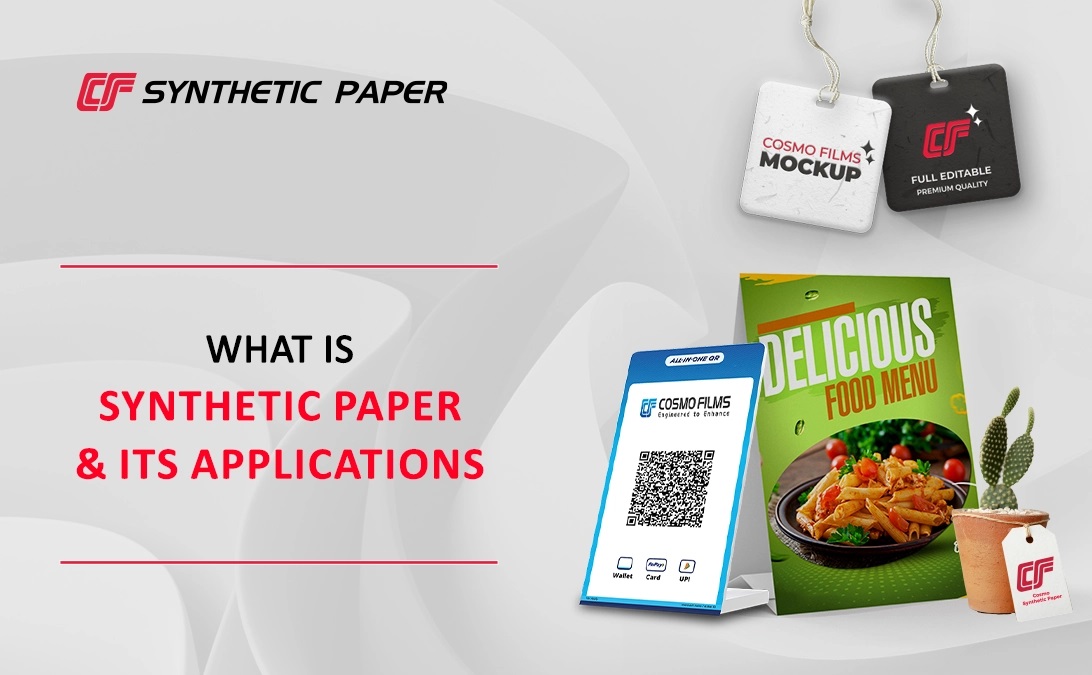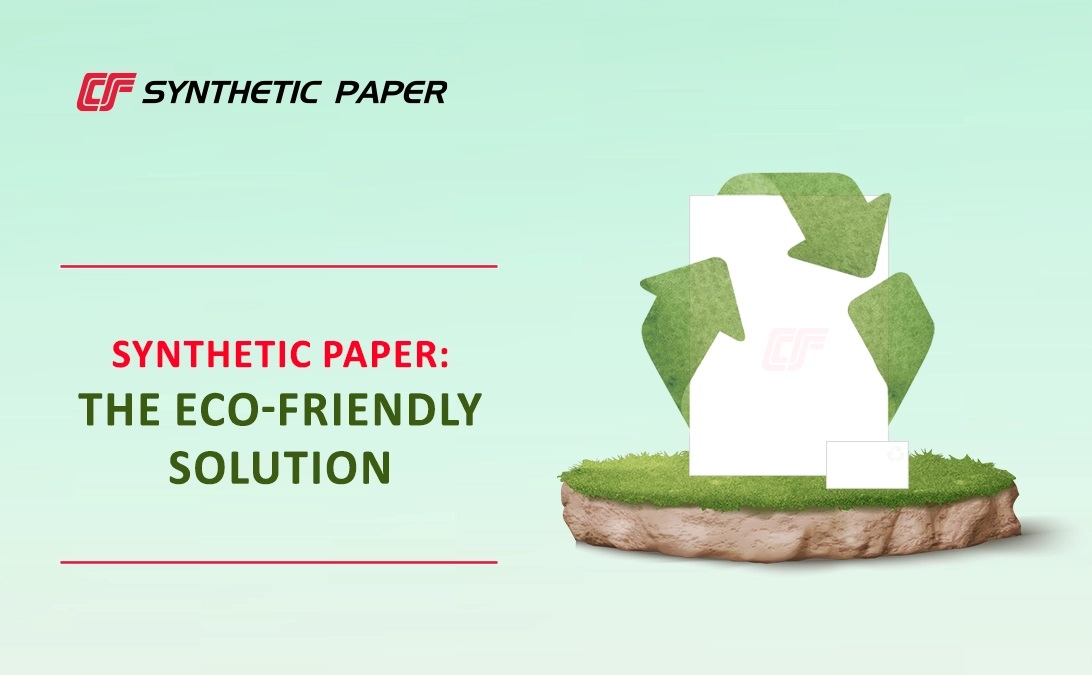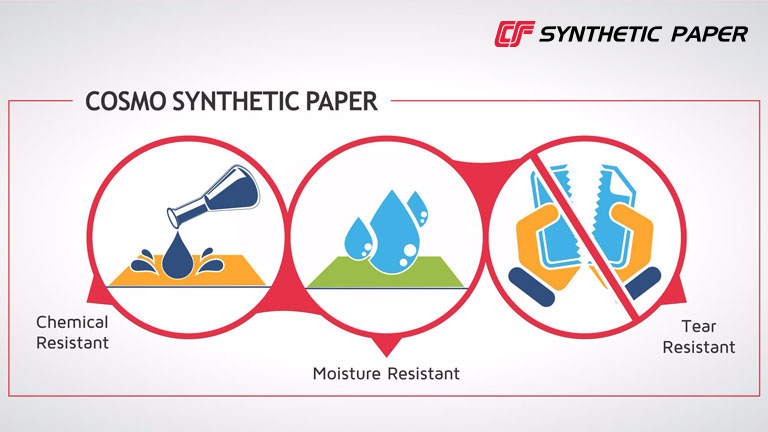Synthetic paper is a revolutionary material that offers a wide range of applications across various industries. It is a durable and versatile alternative to traditional paper, providing exceptional printing capabilities, and resistance to water, chemicals, tearing, and UV radiation. In this article, we will explore the concept of synthetic paper, its unique characteristics, and its applications in different fields.
Introduction to Synthetic Paper
Synthetic paper, as the name suggests, is a type of paper made from synthetic materials rather than traditional wood pulp. It is engineered to mimic the characteristics of conventional paper while offering enhanced durability and longevity. Synthetic paper is commonly made from high-density polyethylene (HDPE) or polypropylene (PP) resins, which are melted and extruded into thin sheets.
Composition and Manufacturing Process
The composition of synthetic paper typically involves blending polymer resins with various additives, such as stabilizers, colorants, and UV absorbers. These additives enhance the physical and chemical properties of the paper, making it more resistant to environmental factors. The manufacturing process involves extrusion, calendaring, and stretching the polymer sheets to achieve the desired thickness and smoothness.
Synthetic paper offers several advantages over traditional paper, making it a preferred choice for many applications. Some key benefits include:
- Durability
Synthetic paper is tear-resistant and waterproof, making it ideal for outdoor applications and products that require long-term durability.
- Printability
It provides excellent print quality and colour vibrancy, making it suitable for high-resolution graphics, photographs, and intricate designs.
- Chemical Resistance
Synthetic paper resists chemicals, oils, solvents, and moisture, ensuring that the print remains intact even in harsh environments.
- UV Resistance
It offers exceptional UV stability, preventing fading and discolouration caused by prolonged exposure to sunlight.
- Environmental Sustainability
Synthetic paper is recyclable and can be produced without using trees, reducing the environmental impact associated with traditional paper production.
Printing and Graphics Industry
The printing and graphics industry extensively utilizes synthetic paper for various applications. Its superior print quality and durability make it an excellent choice for applications like business cards, brochures, catalogues, posters, and indoor/outdoor signage. Synthetic paper allows for vibrant colours, sharp images, and intricate details, enhancing the visual impact of printed materials.
Packaging and Labelling
In the packaging industry, synthetic paper finds applications in labels, tags, and flexible packaging. It can withstand moisture, humidity, and temperature variations, ensuring that the labels and packaging remain intact and legible throughout the product's lifespan. Synthetic paper is also compatible with various printing technologies like flexography, digital printing, and offset printing.
Tags and Tickets
Synthetic paper is commonly used for tags and tickets in retail, transportation, and event industries. Its tear-resistant nature and durability make it suitable for applications like luggage tags, parking tickets, concert tickets, and wristbands. Synthetic paper tags and tickets can withstand handling, exposure to different weather conditions, and rough usage without losing their integrity.
Maps and Charts
Maps and charts often require robust materials that can withstand frequent handling and exposure to the elements. Synthetic paper is an ideal choice for map printing due to its tear resistance, waterproof properties, and excellent print quality. It ensures that the maps and charts remain legible, even in challenging outdoor environments.
Outdoor Signage
Outdoor signage demands materials that can withstand harsh weather conditions and maintain visibility for extended periods. Synthetic paper is highly resistant to UV radiation, moisture, and fading, making it an excellent option for outdoor signage applications. It allows businesses to create eye-catching and durable signs that can withstand rain, wind, and sunlight without deteriorating.
Book Publishing
Synthetic paper has also made its way into the book publishing industry. It offers a unique combination of durability, print quality, and aesthetics. Synthetic paper books are resistant to tearing, staining, and water damage, ensuring a longer lifespan compared to traditional paper books. They can be used for coffee table books, children's books, cookbooks, and other publications that require enhanced durability.
Plant Tags and Nursery Labels
In the horticultural industry, synthetic paper is commonly used for plant tags and nursery labels. These tags need to withstand outdoor conditions, frequent watering, and exposure to sunlight. Synthetic paper tags are tear-resistant, waterproof, and resistant to fading, ensuring that the plant information remains intact and legible throughout the plant's growth cycle.
Medical and Pharmaceutical Uses
Synthetic paper finds applications in the medical and pharmaceutical fields as well. It is used for medical charts, patient wristbands, pharmaceutical labels, and instructions for use (IFU) due to its durability and resistance to moisture and chemicals. Synthetic paper ensures that critical information remains intact and easily readable, contributing to patient safety and product identification.
Environmental Benefits
The production of synthetic paper requires fewer resources compared to traditional paper made from wood pulp. It helps conserve forests and reduces the carbon footprint associated with paper manufacturing. Additionally, synthetic paper is recyclable, enabling the creation of a closed-loop recycling system and further reducing waste.
Some common questions about Cosmo Synthetic Paper
- Is synthetic paper environmentally friendly?
Yes, synthetic paper is considered environmentally friendly as it can be recycled and reduces the reliance on wood pulp, thereby minimizing deforestation.
- Can synthetic paper be used for outdoor applications?
Absolutely! Synthetic paper is highly resistant to UV radiation, moisture, and tearing, making it an excellent choice for outdoor signage, labels, and maps.
- How does synthetic paper compare to traditional paper in terms of durability?
Synthetic paper is far more durable than traditional paper. It is tear-resistant, waterproof, and resistant to chemicals, ensuring that it remains intact and legible even in harsh conditions.
- Can synthetic paper be printed using different printing technologies?
Yes, synthetic paper is compatible with various printing technologies such as flexography, digital printing, and offset printing, allowing for versatile printing options.
- What are some common uses of synthetic paper in the medical field?
Synthetic paper is used for medical charts, patient wristbands, pharmaceutical labels, and instructions for use (IFU) due to its durability and resistance to moisture and chemicals.
Conclusion
Synthetic paper is a remarkable innovation that offers a range of applications across industries. Its durability, printability, chemical resistance, and environmental benefits make it a valuable choice for various purposes. Whether in the printing industry, packaging Industry, signage, or book publishing, synthetic paper provides an excellent alternative to traditional paper, ensuring longevity and visual appeal.
Cosmo synthetic paper offers exceptional durability, print quality, and resistance to environmental factors, making it a versatile material for various applications. From printing and packaging to outdoor signage and book publishing, synthetic paper provides numerous advantages over traditional paper. Its ability to withstand moisture, chemicals, tearing, and UV radiation ensures long-lasting and visually appealing results.
Moreover, synthetic paper contributes to environmental sustainability by reducing the reliance on wood pulp and offering recyclability. With its wide range of applications and benefits, synthetic paper continues to revolutionize industries and provide innovative solutions for diverse needs.











